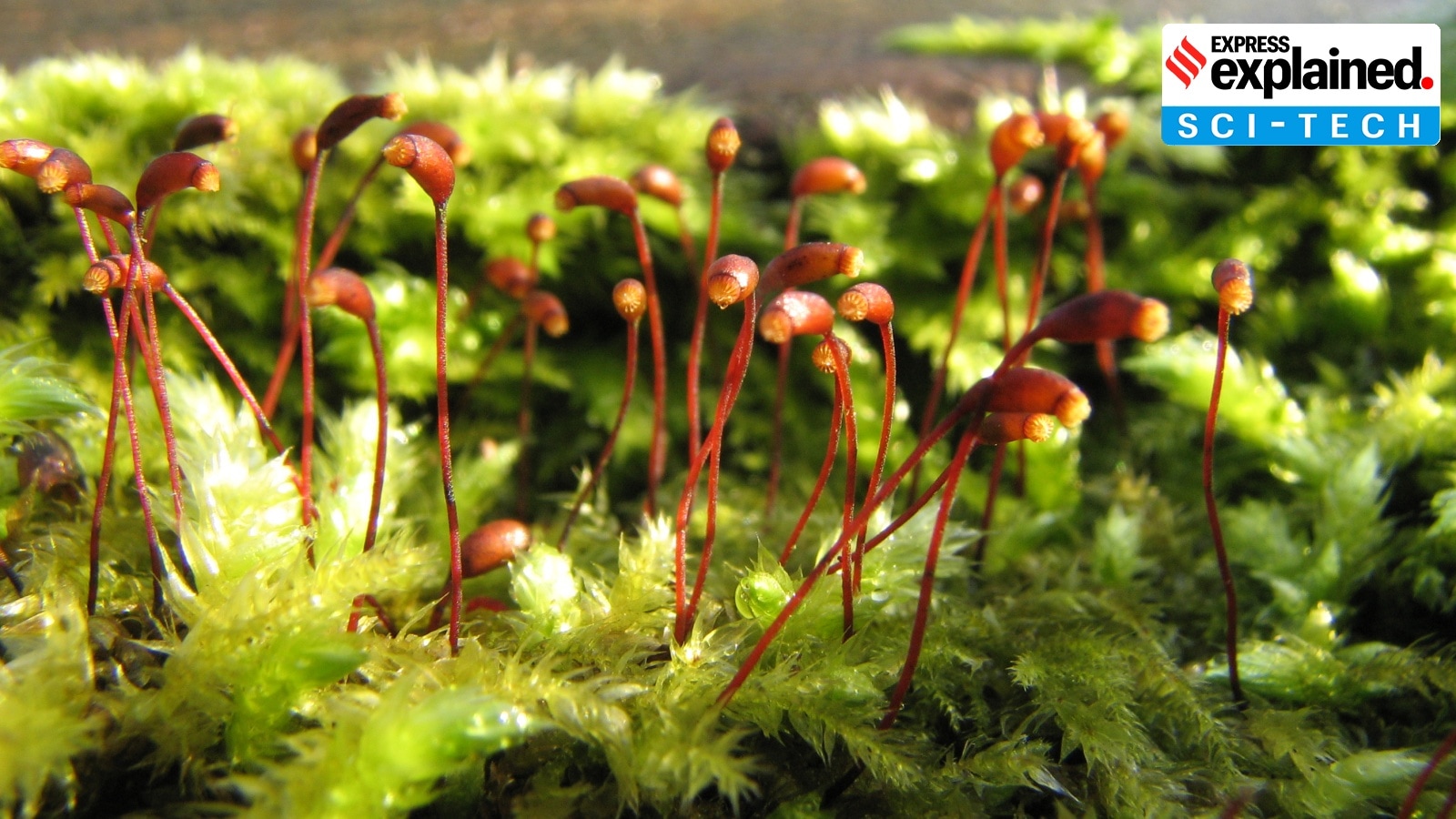Moss spores survive months in space: Why is this significant?
Moss — the small plant usually found in damp, shady spots — is already known for its resilience on Earth. It is among the earliest land plants and has colonised some of the harshest environments on the planet
 Based on their experimental data, the scientists have said that moss can survive in space for about 15 years. (Photo: Wikimedia Commons)
Based on their experimental data, the scientists have said that moss can survive in space for about 15 years. (Photo: Wikimedia Commons)A team of scientists has found that moss can survive a prolonged trip to space. As part of a study, a handful of moss spores survived nine months exposed to low-orbit conditions, with 80% of them still able to reproduce once back in a lab on Earth.
The details of the study, ‘Extreme environmental tolerance and space survivability of the moss, Physcomitrium patens’, were published in the journal iScience last week.
Moss — the small plant usually found in damp, shady spots — is already known for its resilience on Earth. It is among the earliest land plants and has colonised some of the harshest environments on the planet, including Antarctica, volcanic fields, and deserts.
What did the study entail?
In March 2022, the scientists locked 20,000 moss spores outside the International Space Station (ISS) and left them exposed to space, where they endured vacuum, cosmic radiation, microgravity and temperature extremes for 283 days.
In January 2023, the spores were brought back to Earth. The scientists found that more than 80% of them had survived, and of those, all but 11% had successfully germinated in the lab.
“The team checked chlorophyll levels as well – essential pigments for photosynthesis – and found normal levels across the spores, aside from a 20% drop in chlorophyll a. But even that reduction did not appear to harm the spores’ overall health,” according to a report by the BBC.
The scientists suggested that moss spores were able to survive due to the multiple layers of spore walls that encase the reproductive tissue, offering “passive shielding against space stresses”.
Why is this significant?
Based on their experimental data, the scientists have said that moss can survive in space for about 15 years.
This has opened new possibilities in the field of space exploration. That is because it can help expand human habitats other than Earth, such as the Moon or Mars.
Tomomichi Fujita, the lead author of the study, from Hokkaido University (Japan), told The Guardian, “While moss may not be on the menu, its resilience offers insights into developing sustainable life-support systems in space. Mosses could help with oxygen generation, humidity control or even soil formation.”
- 01
- 02
- 03
- 04
- 05






































